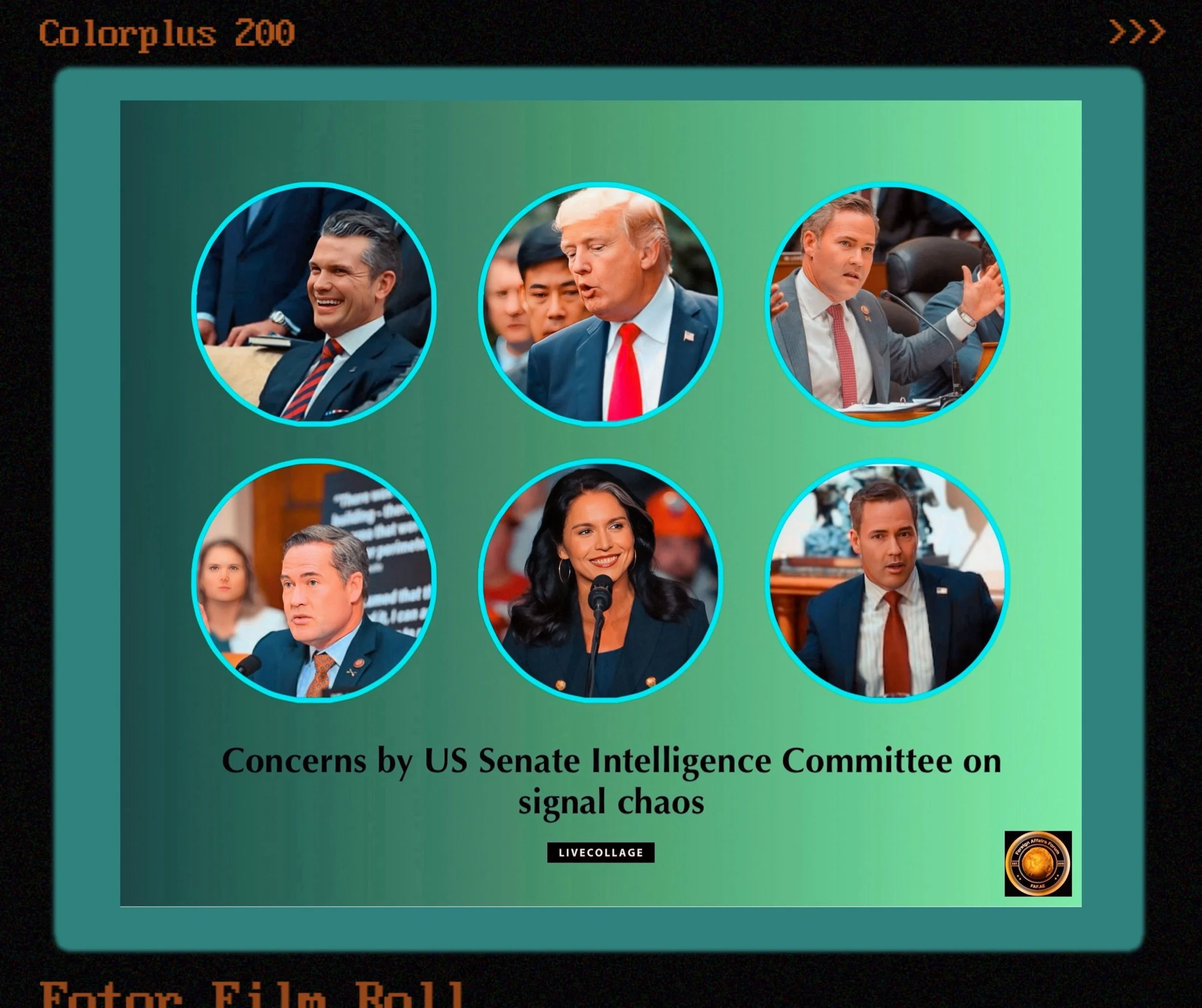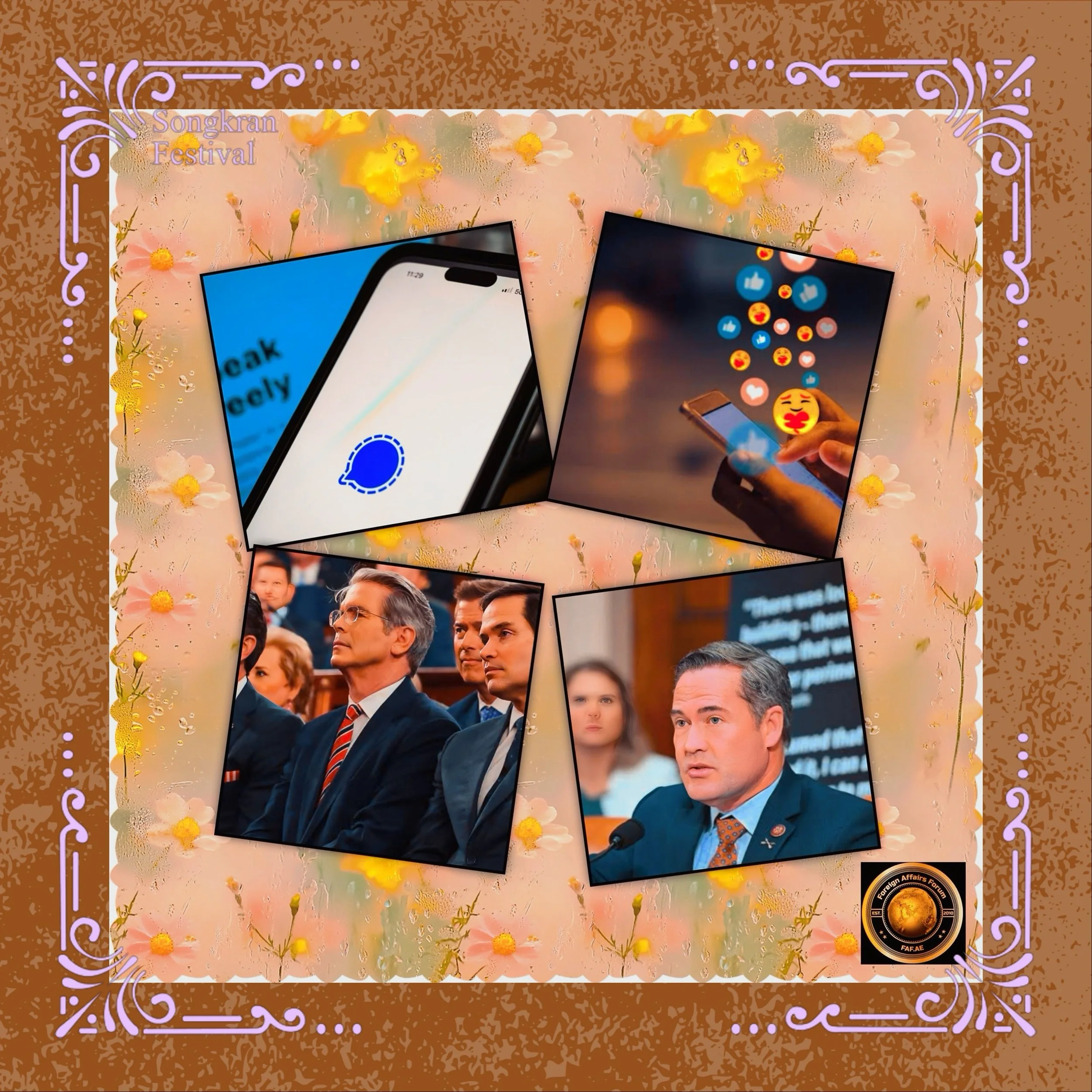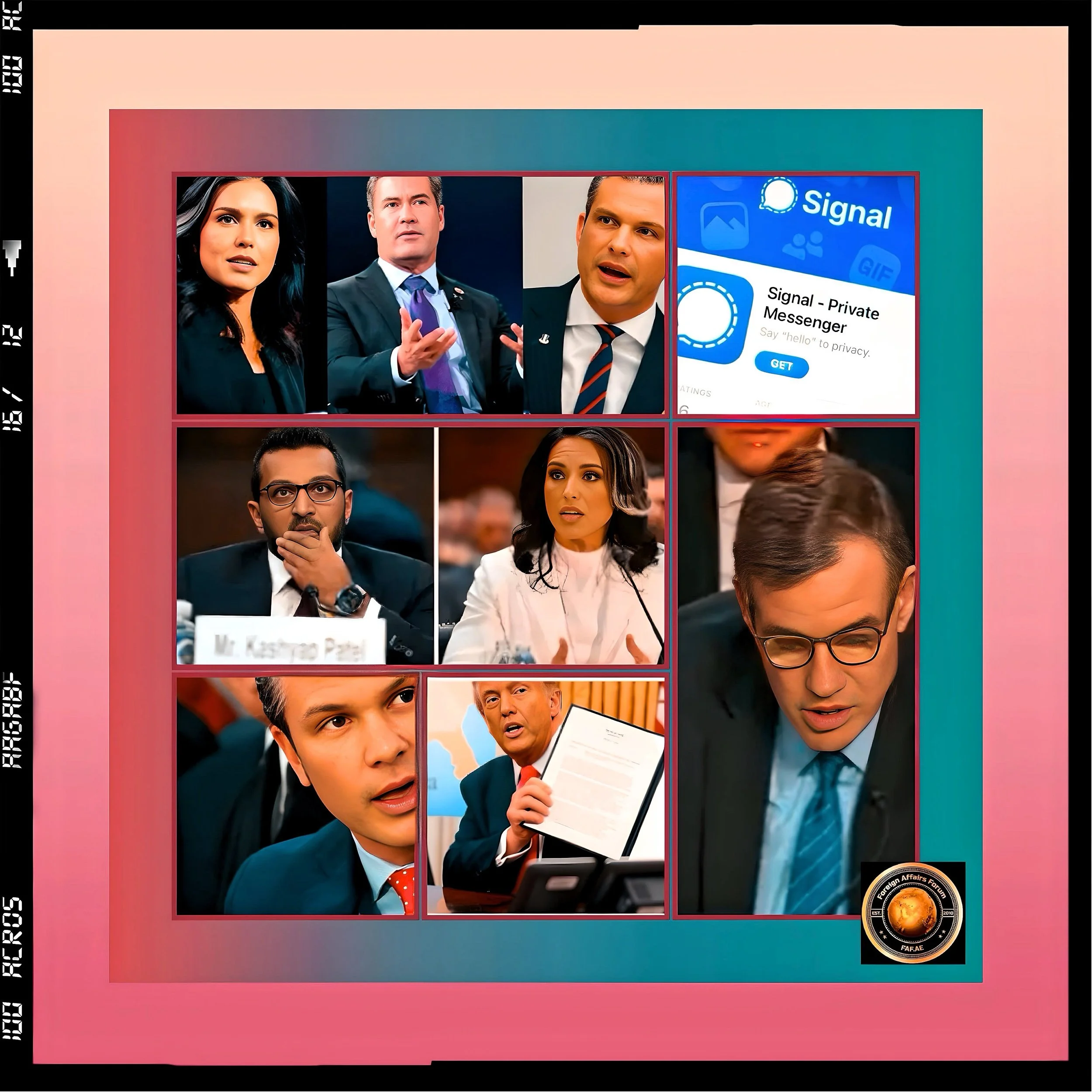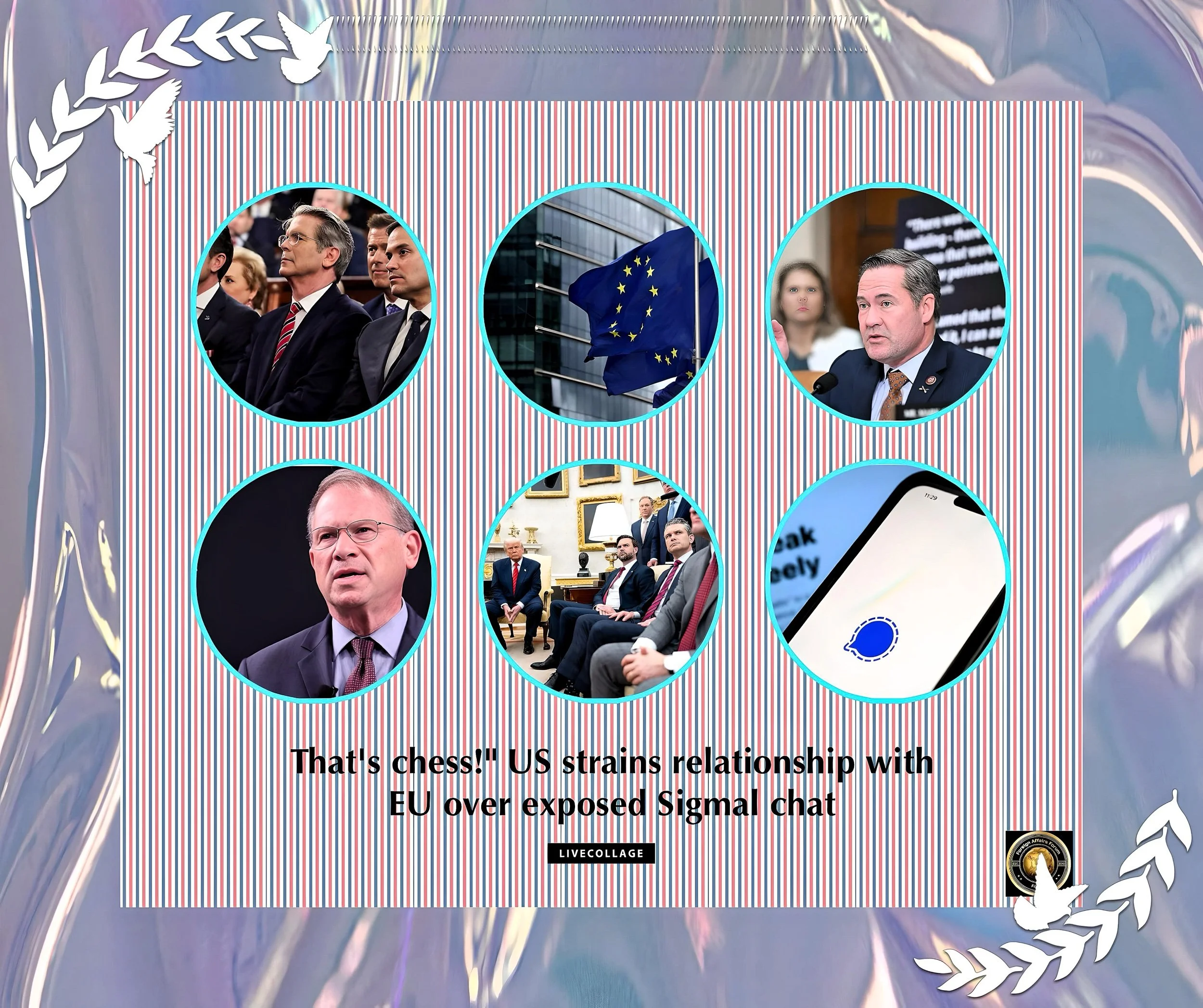Main Concerns Raised by the United States Senate Intelligence Committee During the Signal Chat Hearing
Introduction
The March 25, 2025, Senate Intelligence Committee hearing exposed critical vulnerabilities in the Trump administration’s handling of sensitive military discussions, centering on the accidental inclusion of The Atlantic editor Jeffrey Goldberg in a Signal group chat about U.S. strikes against Houthi targets in Yemen.
Below is our analysis of the primary concerns raised during the proceedings, which highlighted systemic security failures, partisan tensions, and legal ambiguities.
Security Risks of Unauthorized Messaging Platforms
Use of Signal for Military Planning
The committee’s Democratic members condemned the administration’s reliance on Signal, an encrypted but unclassified messaging app, for coordinating military operations.
Senators emphasized that Signal lacks safeguards required for government communications, including:
Absence of Archival Compliance
Signal’s auto-deletion feature risked violating federal records laws mandating preservation of official communications.
Device Vulnerabilities
Participants likely used personal devices, which lack the hardened security of government systems, increasing exposure to foreign hacking attempts.
Unauthorized Access
Goldberg’s inadvertent inclusion revealed lax participant verification, as Signal groups can be modified without multi-factor authentication.
Senator Mark Warner (D-VA) called the breach “mind-boggling,” noting that adversaries like China and Russia actively target encrypted platforms.
The chat’s existence contradicted a 2023 Pentagon memo explicitly prohibiting Signal for non-public defense information.
Debate Over Classification of Shared Information
Contradictions Between Officials and Reporters
While CIA Director John Ratcliffe and Director of National Intelligence Tulsi Gabbard insisted “no classified information was shared,” lawmakers challenged this claim. The chat reportedly contained operational details about:
Target Selection
Specific Houthi sites slated for strikes.
Weapon Systems
Types of munitions to be deployed.
Timing and Sequencing
Exact schedules for the March 15 bombings.
Senator Angus King (I-ME) argued that such details are inherently classified: “It’s hard for me to believe targets, timing, and weapons would not have been classified”.
Gabbard deflected responsibility to the Pentagon, while Ratcliffe admitted the chat was a “mechanism for coordination” but not a substitute for secure channels.
Legal Implications
Experts warned the incident could violate:
Espionage Act (18 U.S.C. § 793)
If classified data was transmitted.
Federal Records Act
Failure to preserve communications.
DoD Directives
Prohibiting unapproved platforms for operational discussions.
Despite these risks, the Justice Department had not yet launched an investigation at the time of the hearing.
Institutional and Partisan Divisions
Democratic Demands for Accountability
Democrats framed the breach as part of a broader pattern of negligence:
Senator Ron Wyden (D-OR) called for resignations of National Security Adviser Michael Waltz and Defense Secretary Pete Hegseth.
Senator Michael Bennet (D-CO) labeled the incident an “embarrassment,” criticizing Ratcliffe’s unawareness that Middle East envoy Steve Witkoff was in Russia during the chat.
Senator Jack Reed (D-RI) pressed Gabbard on whether she used a personal device while overseas, which she declined to answer.
Warner stressed that lower-ranking personnel would face termination for similar lapses: “If this were a military or intelligence officer, they would be fired”.
Republican Deflections
GOP members largely sidestepped the scandal:
Chairman Tom Cotton (R-AR) focused his opening remarks on “politicization” of intelligence agencies and threats from China.
Senators Mike Rounds (R-SD) and Ted Budd (R-NC) deferred questions about the chat to a closed session.
Cotton later defended officials, asserting the Defense Department—not the intelligence community—held classification authority over the chat’s content.
Operational and Diplomatic Repercussions
Compromised Military Efficacy
Lawmakers warned that the leak could have enabled Houthi forces to adjust defenses:
Warner noted, “If the Houthis had access to this information, they could have adjusted their defensive systems”.
The timing of Goldberg’s inclusion—two hours pre-strike—risked alerting adversaries to U.S. tactics.
Erosion of Allied Trust
Senators raised concerns that NATO and Middle Eastern partners might curtail intelligence sharing. Senator Jon Ossoff (D-GA) warned the lapse “undermines confidence in U.S. operational security”. Canadian officials, including Liberal Leader Mark Carney, acknowledged the need for “lessons” but reaffirmed Five Eyes cooperation.
Administrative Downplaying and Defiance
Trump’s Dismissive Response
President Trump dismissed the incident as “the only glitch in two months,” defending Waltz as having “learned a lesson”. Defense Secretary Hegseth denied “texting war plans,” despite Goldberg’s corroborated reporting.
Intelligence Officials’ Justifications
Ratcliffe and Gabbard offered contentious defenses:
Signal as “Permissible”
Ratcliffe claimed Signal was preinstalled on his CIA computer and deemed acceptable for unclassified coordination.
Audit Commitments
Both agreed to audits of their communications but provided no timelines.
FBI Inaction
Director Kash Patel declined to confirm whether the bureau would investigate.
Conclusion
A Crisis of Protocol and Credibility
The hearing underscored systemic failures in the administration’s adherence to security protocols, exacerbated by partisan divides over accountability. While Democrats demanded reforms—including audits, device restrictions, and personnel changes—Republicans minimized the breach as a distraction.
The incident highlighted tensions between operational convenience and legal compliance, leaving unresolved questions about the safeguarding of classified information in an era of decentralized communication tools.
As Senator King summarized: “This was not only careless but violated all protocols; had this information leaked, it could have endangered American lives”.
The fallout suggests lasting impacts on interagency trust, congressional oversight, and international partnerships.





